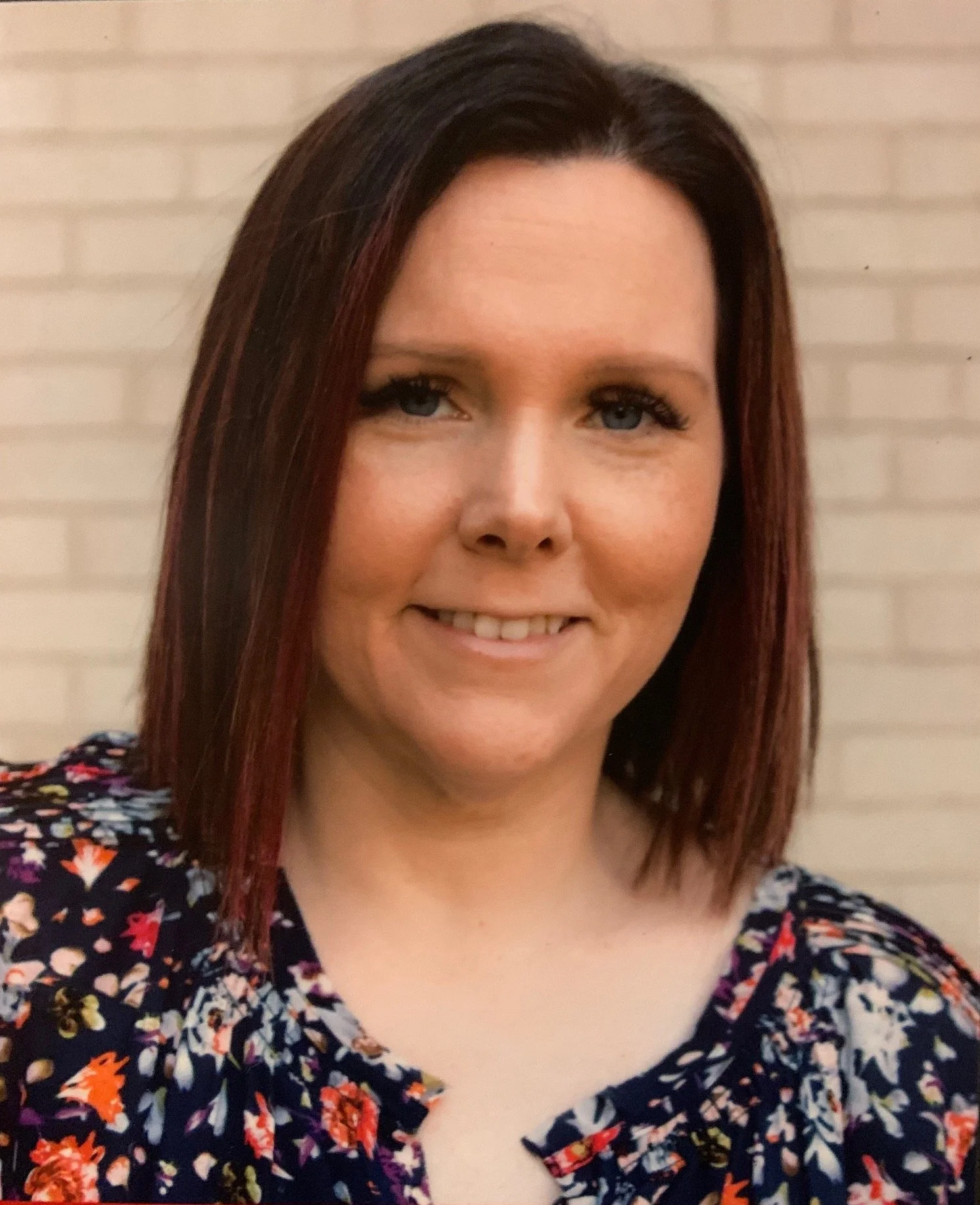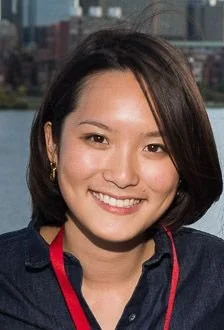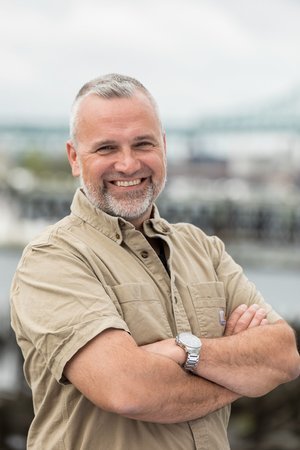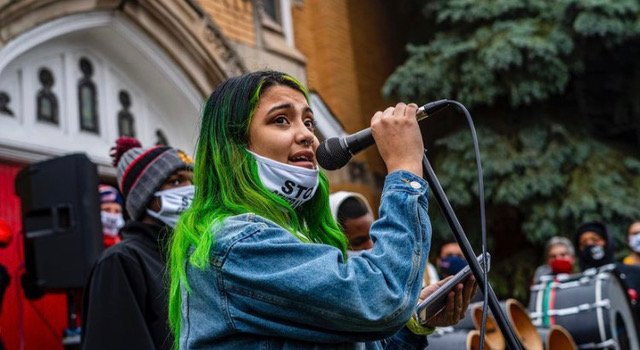Symposium 2022 Participants
“Jay” Julius (W’tot lhem), President, Se’Si’Le
Bellingham, Washington
Jay Julius W'tot Lhem (Lummi)
Se’Si’Le (saw-see-lah)
Jeremiah “Jay” Julius (W’tot lhem) is President and founder of the Indigenous-led nonprofit, Se'Si'Le, dedicated to preserving tribal ancestral knowledge and securing its place in the effort to restore to health our natural environment. He is a life-long fisher and enrolled member of the Lummi Nation of Washington State. Jay is one of the Founders of the intertribal nonprofit, the Pacific Northwest Tribal Salmon Alliance and is on the Board of Directors of Stand.earth in Bellingham, WA. Jay served as chairman of the Lummi Nation for two consecutive terms until the winter of 2019. During his four years in the Lummi government he led campaigns across the Salish Sea bioregion to fight for the health and well-being of Creation, including the historic victory at Cherry Point. Jay believes in honoring his Nation’s treaty rights and inherent rights and is a strong advocate for true government-to-government relations. Jay also shares his passion for traditional knowledge, self-improvement, and leadership through his life coaching practice.
Jade Mazon, founder, Rebel Bells Collective
Chicago, Illinois
Jade Mazon
Jade Mazon is a lifelong resident of Southeast Chicago. She is an environmental justice leader, a mother, and a co-founder of the Rebel Bells Collective, a social justice organization for young girls of color. The intention is to home-grow activists and guide 7-17 year-olds to discover their worth and power. As part of her leadership with Rebel Bells, in 2020, Jade joined a hunger strike led by community activists in opposition to community exclusion from the City of Chicago’s permitting process for an industrial auto demolition and shredding operation. Jade has a Bachelor’s Degree in Anthropology from Loyola University Chicago.
Amanda Stanfield, owner, GrowFourth Urban Farm
Mansfield, Ohio
Amanda Stanfield
Amanda Stanfield is the founder and owner of GrowFourth Urban Farm, a member farm of the Richland Gro-Op in Mansfield, Ohio. GrowFourth developed from a community garden started by Amanda’s family. As the first homestead urban farmers in Richland County, Amanda strives to not only to provide fresh, high quality produce, but lead by example in the natural, organic locally-minded processes of farming, permaculture, youth interaction, positive neighborhood connections and a healthier living environment for all.
Ryan Emanuel (Lumbee), Associate Professor of Hydrology
Durham, North Carolina
Ryan Emanuel, PhD (Lumbee)
Ryan Emanuel is an associate professor at Duke University in the Nicholas School of the Environment. He been involved in water resources research for more than 25 years. At Duke, he leads a research group that focuses on environmental processes in natural and human-altered ecosystems. Ryan is an enrolled member of the Lumbee Tribe of North Carolina, the largest American Indian tribe in the eastern United States. He also studies policy issues surrounding environmental justice and Indigenous rights, working alongside tribal governments and American Indian organizations to provide information and analysis related to environmental and cultural issues. He holds a B.S. in Geology from Duke University and an M.S. and Ph.D. in Environmental Sciences from the University of Virginia.
John Walkey, Director of Waterfront and Climate Justice Initiatives, Green Roots
Boston, Massachusetts
John Walkey
John Walkey is an East Boston resident who has been committed to the work of the Chelsea Creek Action Group (a cross-Creek coalition of Chelsea and East Boston residents, organized in Chelsea by GreenRoots) and the movement for environmental, climate and transportation justice for the past fifteen years. He has previously worked with Alternatives for Community and Environment (ACE) and the Urban Ecology Institute. John’s technical capacity in GIS, database development and web-based technologies complement his program management experience in the Greater Boston area and in Central America.
Kurt Russo, Executive Director, Se’Si’Le
Bellingham, Washington
Kurt Russo, PhD
Se’Si’Le (saw-see-lah)
Kurt Russo is the executive director of Se’Si’Le, an Indigenous-led nonprofit dedicated to the perpetuation and practical application of Indigenous ancestral knowledge. Kurt has worked with Indigenous communities since 1978 in the areas of sacred site protection, Indigenous treaty rights, environmental cross-cultural conflict resolution, and the intertextualization of ways of knowing nature. He was co-Founder and Executive Director of the Florence R. Kluckhohn Center for the Study of Values and the Native American Land Conservancy, helped establish the International Indigenous Exchange Program (Northwest Indian College), the Sacred Lands Conservancy, and the Foundation for Indigenous Medicine. He has a BS in Forestry from the University of Montana, an MS in Forestry from the University of Washington, and a Ph.D. in History from the University of California (Riverside). He is a veteran and served in Viet Nam where he worked with Montagnard Indigenous communities.
Santana Rabang
Bellingham, Washington
Santana Rabang
Se’Si’Le (saw-see-lah)
Santana Rabang identifies as being from Lummi Nation, Nooksack Tribe, and First Nations Shxwhay Village. She is enrolled at Northwest Indian College (NWIC) and will attain her AA at the end of 2022. NWIC is located on the traditional homelands of the Lhaq’temish people where Santana proudly raises her two teenage brothers. Attending NWIC allows Santana to learn about place based knowledge and commit to the betterment of her community. Santana works at Children of The Setting Sun Productions (CSSP) as a producer and lead researcher. She is working on her first podcast episode within ‘Young and Indigenous’ that highlights identity. She has worked closely with the Salmon People Project. Santana is committed to finding ways to be an asset to her organization, community, and her people. Participating in as many cultural events as she can, Tribal Canoe Journeys is her favorite.
Olga Bautista, Executive Director, Southeast Environmental Task Force
Chicago, Illinois
Olga Bautista
Southeast Environmental Task Force
Olga Bautista is a mother of two and lifelong resident of Southeast Chicago. Olga is the executive director of the Southeast Environmental Taskforce and has a deep commitment to ensuring a sustainable and equitable future for South Chicago. She is trained in Restorative Justice Conflict Resolution and DIY Balloon Mapping. As one of the lead organizers for the Chicago Southeast Side Coalition to Ban Petcoke, Olga continues to lead the fight that has forced state and local politicians to address pressing environmental issues in Chicago’s 10th Ward.
Gregory Miller, Student Voice Committee, George Washington High School
Chicago, Illinois
Gregory Miller
George Washington High School
Gregory Miller is a sophomore at George Washington High School where he is a part of the Student Voice Committee and a part of the YLC, also known as ASE (Alliance of the Southeast), who helped deny a permit to General Iron's relocation to the southeast side of Chicago.
Donna Chavis (Lumbee), Senior Climate Campaigner
Pembroke, North Carolina
Donna Chavis (Lumbee)
Donna Chavis has over 40 years of service in the nonprofit and philanthropic sectors on the local, state, and national level and currently serves as Senior Climate Campaigner with Friends of the Earth U.S. She is a recognized leader in social and environmental justice change and practice. Donna was a member of the Planning Committee of the First National People of Color Leadership Summit in 1991 which developed the Principles of Environmental Justice. She remains committed to those principles and has specifically integrated them in her work over the past four years in opposition to the proposed Atlantic Coast Pipeline. When she is not working for environmental and social justice Donna enjoys music, poetry and time outside with her friends and family. She is a member and Elder of the Lumbee tribe of North Carolina and resides in the ancestral home of Pembroke, NC.
Trinity Colón, Student Voice Committee, George Washington High School
Chicago, Illinois
Trinity Colón
George Washington High School
Trinity Colón is a senior at George Washington High School working as the National Resources Defense Council (NRDC)’s 2021 Midwest Youth Ambassador and an environmental justice activist based out of the Southeast Side of Chicago. She takes pride in being from her underserved community and having Mexican-American and Puerto Rican heritage.
Alejandra Cruz, Student Voice Committee, George Washington High School
Chicago, Illinois
Alejandra Cruz
George Washington High School
Alejandra Cruz is a junior at George Washington High School where she is part of the Youth Leadership Council and Student Voice Committee. “Through those spaces I have grown with love and as a youth activist in the east side of Chicago I have advocated for environmental justice to be able to see our community heal and feel that love.”
Walt Bonham, founder of Food Lab LLC
Mansfield, Ohio
Walt Bonham
Walter Bonham is an Urban Farmer and a founding member of the Richland Gro-Op who works to bridge the gaps between food insecurities and agriculture awareness in Mansfield, Ohio. By combining his background in business and science management with his newfound love for farming, Bonham created The Food Lab LLC. Walt helps people to become more conscious about what they eat and where it comes from and addresses food insecurities by building hoop houses, forming community gardens, and offering catering and meal prep services to residents. Walt holds a B.S. in Business from Wittenberg University and an M.S. in Management from Ohio Dominican University.
Bianca Bowman, Climate Justice Organizer, GreenRoots
Boston, Massachusetts
MIT Team
-

Briana Meier
Dr. Briana Meier is an ACLS Emerging Voices Postdoctoral Fellow in MIT Anthropology, where she is helping to organize the 2022 Living Climate Futures events. She is currently partnering with Se’Si’Le on an initiative to build place-based, cross-cultural solidarity across urban spaces and Indigenous territories. Through her work with Landscape for Humanity, Briana advances community-engaged research on participatory landscape design in transitional housing communities. Briana holds a Ph.D. in environmental sciences, studies, and policy from the University of Oregon. Her master's degree in urban and regional planning, urban design, and real estate is from Portland State University, and she has a B.A. in Environmental Studies and Philosophy from Cornell College.
-

David Shane Lowry
David Shane Lowry, a Member of the Lumbee Tribe, is the Distinguished Fellow in Native American Studies at MIT. His first book, Lumbee Pipelines (under contract with University of Nebraska Press), explores American Indian utilization of colonial conditions to create opportunities that are both uplifting and oppressive. David Shane has a PhD in Anthropology from North Carolina State University and a Bachelor’s degree from MIT, where he majored in Anthropology.
-

Bettina Stoetzer
Associate Professor Bettina Stoetzer is a cultural anthropologist whose research focuses on the intersections of ecology, globalization, and urban social justice. Her forthcoming book, Ruderal City: Ecologies of Migration and Urban Life in Berlin (Duke), demonstrates how human-environment relations have become a key register through which urban citizenship is articulated in contemporary Europe. At MIT, she teaches “Gender, Race and Environmental Justice” and “City Living: Ethnographies of Urban Worlds.”
-

Kate Brown
Professor Kate Brown is a historian in the Program in Science, Technology, and Society at MIT. She is the author of four books, including Dispatches from Dystopia: Histories of Places Not Yet Forgotten (Chicago, 2015) and Manual for Survival: A Chernobyl Guide to the Future (Norton, 2019). She is currently exploring the history of “plant people:” indigenes, peasants and maverick scientists who understood early on that plants communicate and possess the capacity for memory and intelligence.
-

Christine Walley
Professor Christine Walley is the author of Rough Waters: Nature and Development in an East African Marine Park (Princeton, 2004) and Exit Zero: Family and Class in Post-Industrial Chicago (Chicago, 2013). She is working with the Southeast Chicago Historical Museum, filmmaker Chris Boebel, and web designer and artist Jeff Soyk to create an interactive archive and storytelling website that uses objects saved by Southeast Chicago residents and the stories they told about them to explore what it means to be “working class” in the United States. The website is at sechicagohistory.org. At MIT, she teaches graduate and undergraduate courses on environmental struggles.
-

Susy Jones
Susy Jones is Senior Sustainability Project Manager in the Office of Sustainability at MIT, where she works closely with administrative staff, faculty, students, and community members to integrate sustainability into the Institute. Before her arrival at MIT, she was a Program Manager at Northeast Energy Efficiency Partnerships in Lexington, Mass., where she worked to advance regional, state, and local energy efficiency policies. Susy has an M.A. in Urban & Environmental Planning & Policy from Tufts University and a B.A. in English from Bryn Mawr College.
-

Carolyn Carlson
Carolyn Carlson is the Senior Administrative Assistant for MIT Anthropology.
-

Kate Gormley
Kate Gormley is the Administrative Assistant for MIT Anthropology.
-

Amberly Steward
Amberly Steward is the Academic Officer for MIT Anthropology.
-

Heather Paxson
Professor Heather Paxson is Head of MIT Anthropology and part of the editorial collaborative at Cultural Anthropology. She is the author of two books, including The Life of Cheese: Crafting Food and Value in America (California UP, 2013); her edited volume, Eating Beside Ourselves: Thresholds of Foods and Bodies, is forthcoming with Duke UP.
-

Caroline White-Nockleby
Caroline White-Nockleby is a PhD student in MIT’s program in History; Anthropology; and Science, Technology, and Society (HASTS). Her dissertation studies how people in Chile and California create and contest climate futures by debating energy storage projects. She has also worked on environmental justice projects in the U.S. and Latin America, most recently as a research assistant with MIT’s Environmental Solutions Initiative. Caroline has a master’s degree from the University of Cambridge in Anthropology, and a B.A. from Williams College in Geosciences.
-

Jamie Wong
Jamie Wong is a PhD candidate in History; Anthropology; and Science, Technology, and Society (HASTS) at MIT. She researches venture capitalism in China, and how its nested logics of growth, accumulation, and acceleration habituate Chinese publics to new experiences of risk and failure. She received her B.A. in Music from The Chinese University of Hong Kong, and holds a MSt in Musicology and MPhil in Social Anthropology from the University of Oxford.
-

Alex Rewegan
Alex Rewegan is a PhD candidate in History; Anthropology; and Science, Technology and Society (HASTS). Working at the intersection of the anthropology of medicine and agriculture, he uses ethnographic methods to study how North America’s legalizing cannabis industry develops and applies ideas and practices relating to social equity and environmental sustainability. Alex holds an MA in Social Anthropology from York University, Toronto.















